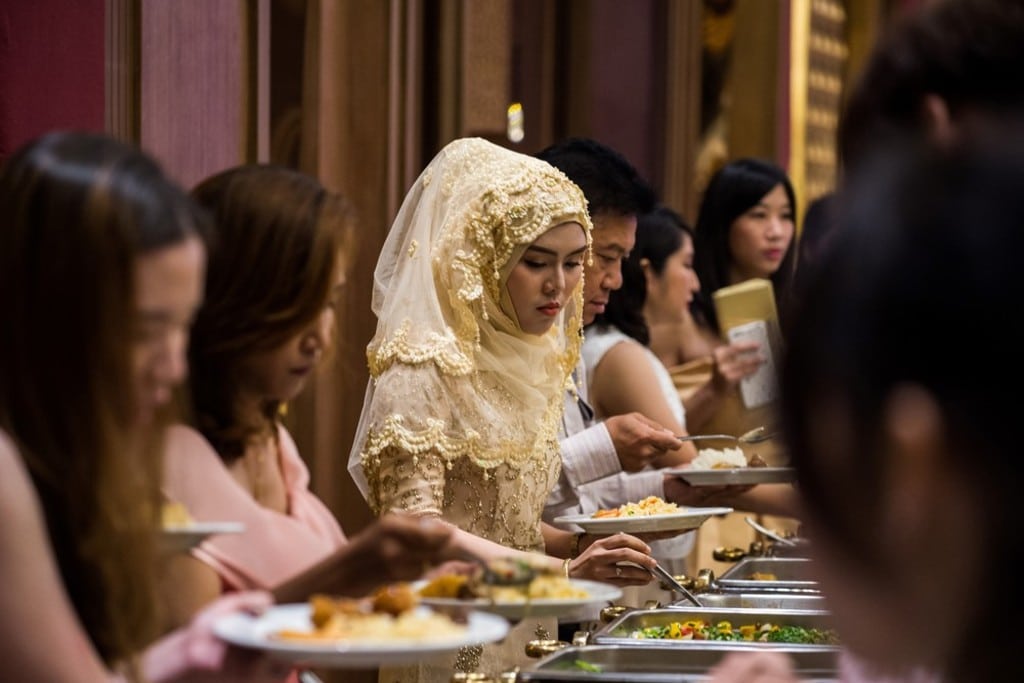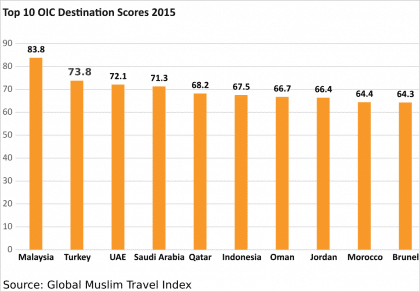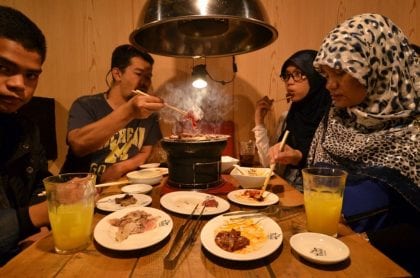
According to a report published by the industry platform Global Islamic Economy Gateway (Salaam), the Muslim market spent $142 billion on travel in 2014-2015 and is expected to spend $233 billion, or 13 per cent of global expenditure, by 2020. To cater to the needs of this growing market segment, an increasing number of travel agencies are turning to halal tourism, and more and more countries are promoting the halal industry.
Halal tourism is a sub-category of tourism that is aligned with the laws and traditions of Islam. These include restaurants that do not serve pork or alcohol and hotels that offer separate spas and pools for men and women. The top destinations for Muslim tourists are Saudi Arabia, the United Arab Emirates, Kuwait, Qatar and Turkey, but new players have entered the industry in the past five years including Malaysia, the Philippines and Japan.
In an article published on Vocativ in December 2013, journalist Alessandria Masi described Crescent Rating, an independent rating system for halal-friendly trips and services. A rating from 1 to 7, 7 being the most halal, ‘is determined by the availability of halal food, prayer direction indicated in room, whether they serve alcohol, and if there is a hand shower or bidet in bathroom (for ablution before prayer),’ Masi wrote. According to the article, accessibility to halal food is the most important requirement for a good halal trip followed by proximity to a place to pray.
In 2015, Salam Standard, the first online hotel reference tool specifically aimed at Muslim travellers, was launched. “More than 55,000 hotels are already indexed and display their Muslim-friendly amenities and services,” Faeez Fadlillah, the creator of the standard, told Fanack. “The Islamic Tourism Centre recently partnered with Salam Standard to launch the Premium Hotel Classification scheme whereby all hotels undergo regular rigorous checks to ensure they meet the required criteria.”
Among the major brands currently rated – as bronze, silver, gold or platinum – are Marriott, AccorHotels, Mövenpick and the Archipelago Hotel Group. “Salam Standard was conceived after 50,000 Muslim travellers were surveyed to find out what services and amenities were most important to them when travelling,” Fadlillah added. “Now, people can find out whether a hotel offers prayer mats, whether it serves halal food and whether alcohol is in the minibar and if it can be removed before arrival.”
 Research conducted by Salam Standard found that 95 per cent of respondents consider a certified Muslim-friendly hotel as a better choice than a non-certified one, and 91 per cent of respondents are likely to pay more for a Muslim-friendly hotel. “The importance of Muslim-friendly and halal tourism will grow significantly over the next decade,” said Fadlillah. “Muslim travel is currently one of the fastest growing travel segments globally and is having a large economic impact on many tourist destinations. We believe that Muslim-friendly tourism is an integral part of a new holistic travel concept, which is moving towards offerings for different customer segments and more personalized travel.”
Research conducted by Salam Standard found that 95 per cent of respondents consider a certified Muslim-friendly hotel as a better choice than a non-certified one, and 91 per cent of respondents are likely to pay more for a Muslim-friendly hotel. “The importance of Muslim-friendly and halal tourism will grow significantly over the next decade,” said Fadlillah. “Muslim travel is currently one of the fastest growing travel segments globally and is having a large economic impact on many tourist destinations. We believe that Muslim-friendly tourism is an integral part of a new holistic travel concept, which is moving towards offerings for different customer segments and more personalized travel.”
Others have also recognized the economic potential of this trend, too. In April 2017, the 1st International Halal Tourism Congress was held in Turkey. Organized by Kastamonu University’s Faculty of Tourism, it hosted dozens of academics from 13 different countries over 26 separate scientific sessions covering everything from halal tourism potential and halal tourism standardization to finance and marketing and hotel management.

“We want to be able to reach the level that our country [Turkey] deserves in the halal tourism sector and to take the right share of this fast-developing sector,” Huseyin Pamukçu, the congress’s halal tourism secretary, told Fanack. “In a world where halal tourism is supported even by non-Muslim countries, it is essential that our country be an example for Islamic countries.” After two days of sessions and panel discussions, “the 1st International Halal Tourism Congress was able to establish close relations with experts and leaders about the changing market trends and opportunities in the field of halal tourism”, Pamukçu added.
Some tools are more practical, such as HalalTrip.com, a review and advice site that allows Muslims to make informed choices before they travel. “The Muslim travel market is one of the fastest growing [travel] segments,” Fazal Bahardeen, the founder of the site, told Fanack.
In an effort to cover a broad range of requirements, the site focuses on leisure tours with themes such as adventure, honeymoon, personal development and food. “Muslim travellers are beginning to travel to destinations they didn’t used to visit due to concerns about food, for example,” Bahardeen said. “Now, many destinations are targeting them and catering to their needs. As such, we are seeing growth to destinations such as Japan, Korea and Taiwan. Overall, Muslim tourists are like any other tourists looking to experience new things, culture, food or shopping. The main difference is that Muslim travellers still want to keep to their basic faith-based principles while they are away from home. This means, among others, halal food and places to pray.”
With the growing investment in and focus on halal tourism in the Middle East and Asia, Muslim tourists could soon have a much larger number of destinations to choose from. Europe, however, where the segment is still relatively undeveloped, has some catching up to do.


